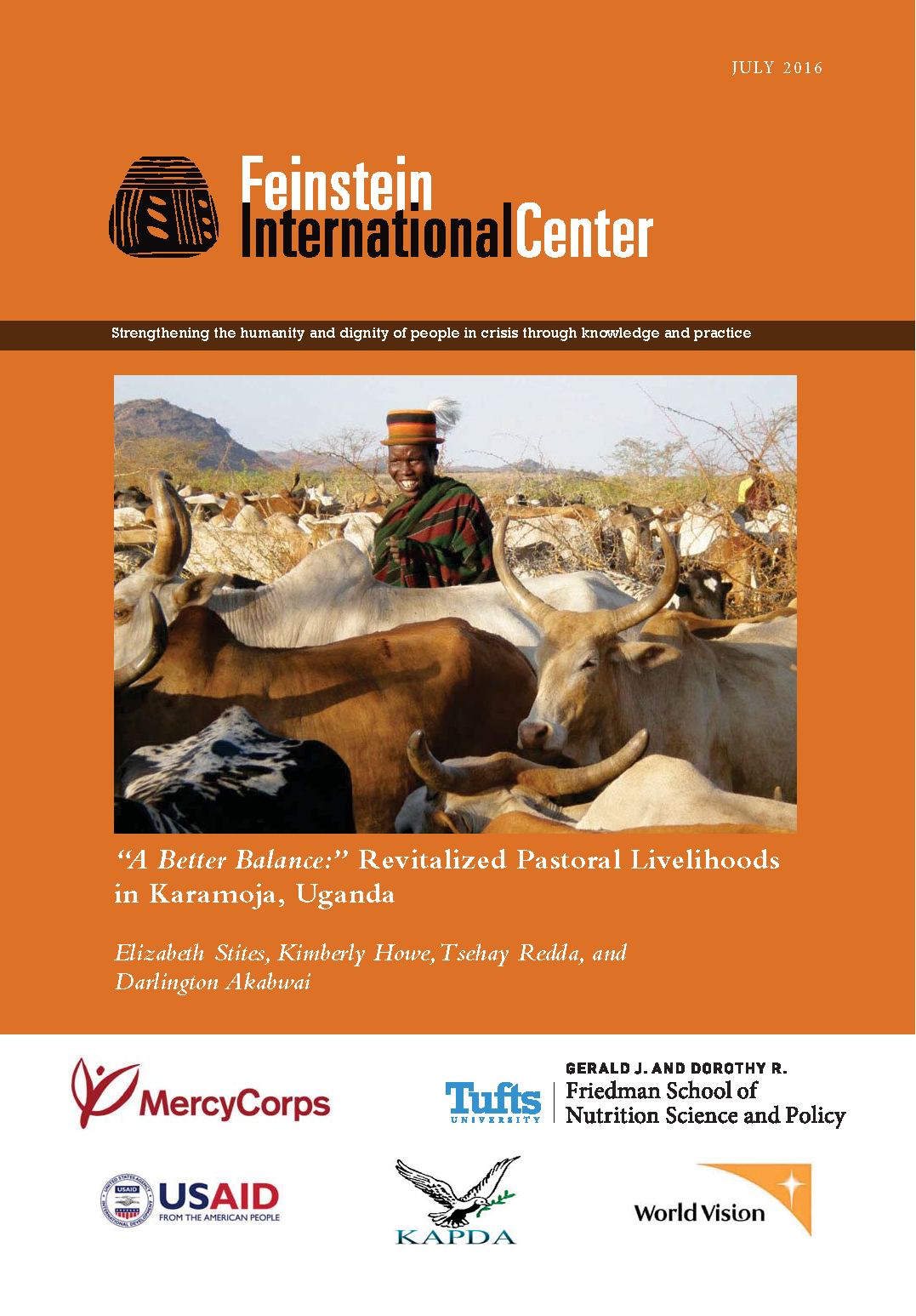- Animal-based livelihoods appear to be rebounding in some areas. The hints of resurgence in pastoral production come after years of significant loss of livestock due to raiding, disease, and policies that forced herders to confine their animals to small protected areas. The improvement is due largely to improved security, which has allowed herds to be more mobile.
- Animal ownership is critical to resilience. When compared with households entirely without animals, households who have retained their animals are in a much better position to withstand shocks and to ensure that they have enough to eat throughout the year and during crisis periods.
Despite the progress, we found four major barriers to the revitalization of pastoral production: growing inequity of animal ownership, poor animal health, limited mobility, and a poor policy environment. The report provides specific recommendations to address each of these barriers.
This report emerges from the partnership between the Feinstein International Center and Mercy Corps as part of the Growth, Health and Governance project funded by USAID. Findings are based on field work in early 2016 with four communities in northern and southern Karamoja.







